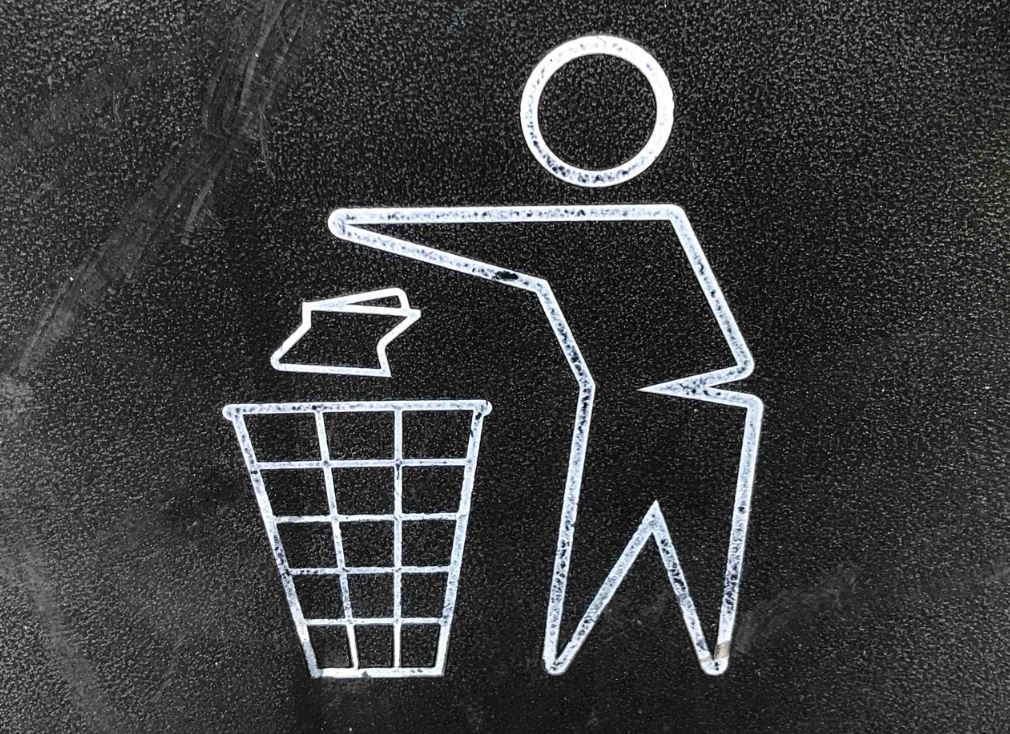Environmental topics tend to inspire heated debate, but for the most part, most people agree that we should all strive to be environmentally friendly. But what is it that makes some people give up single-use plastic entirely, while others don’t?
The answer depends on the person and their circumstances, but a very simplistic approach allows us to divide those motivations into two categories: negative and positive. Some people act out of guilt, while others act out of responsibility. Some people focus on long-term rewards while others only see the immediate inconvenience.
In this article, I will take a look at the psychological antecedents and consequences, both positive and negative, of sustainable behavior. How does sustainable behavior influence your mental health?
Sustainable behavior
Both people and businesses alike are encouraged to make sustainable choices. Sustainable behavior can be as simple as turning off the tap while you brush your teeth, or bringing your own coffee cup to get coffee to avoid using a single-use one.
At the other end, sustainable behaviors can be much more complex, like living a zero-waste lifestyle.

Most people partake in some sustainable behaviors like bringing a reusable shopping bag to the supermarket, or shopping second-hand to avoid buying fast fashion. Often, these behaviors aren’t only saving the environment, but also help to save money. Yet few people manage to live a zero-waste life and give up the convenience of having a car. At some point, living a sustainable life starts to impact the rest of your life.
To understand what makes people behave in one way or another, let’s take a look at the psychology behind sustainable behavior.
The “negative” psychology of sustainability
A lot of psychological research is focused on the negatives. One reason often cited for this negative bias is that our brains are wired to pay more attention to danger and other unpleasant sensations and experiences in order to ensure our survival.
This makes sense, in a way. For example, failing to notice a friend on the street will probably only result in something to laugh about later. But failing to notice someone following you late at night can have much more serious consequences.
This negative bias affects almost every area of life and a sizable part of our lives is spent on avoiding and alleviating negative emotions and experiences. As such, it makes sense that sustainable behavior is also often negatively motivated.
Guilt and fear vs sustainability
For example, Western Michigan University psychology professor Richard Malott writes that guilt and fear are often stronger motivators to make environment-saving changes in our behavior than feel-good incentives, “because we can always wait until tomorrow to feel good, whereas we’re feeling guilty or fearful right now”.
Jacob Keller, who undertook a recycling-themed project for his elementary school science fair in 1991, commented on his project and recycling behavior in 2010: “Those depressing images of the seemingly infinite oceans of trash inspired me more than anything to want to be proactive about recycling and get more people involved.”

Chances are that you, too, have seen footage of the Great Pacific Garbage Patch or marine wildlife getting caught plastic, or statistics about the detrimental environmental impact of fast fashion. These images and facts tend to shock most people into some sort of action, because they often imply that by buying $5 t-shirts or not recycling water bottles, the consumer is directly responsible for these environmental crises.
Of course, the situation is far more nuanced than that. If guilt, fear and depressing statistics were enough to push people into action, no more calls to action would be needed.
The sacrifices of living sustainable
The key is in the immediate, personal consequences of our actions. A 2007 article suggests that discomfort and sacrifice are more likely to occur as a consequence of sustainable behavior than rewards.
Despite our ideals and intentions, humans are creatures of habit and convenience, and most of us are used to certain conveniences that are difficult to give up. For example, why should I spend $40 on a sustainably made t-shirt, when I can save money by shopping at a fast-fashion chain? Or why go to a market or dedicated packaging-free store for groceries when I can buy the same things more conveniently at a regular supermarket?
Sustainable behavior may require people to stop consuming animal products which, while increasingly easier, still requires sacrifice, like limited options while eating out. Although seemingly small, these perceived sacrifices can make sustainable behavior much more difficult than non-sustainable behavior.
The positive psychology of sustainability
It may seem that there is no happiness to be found in sustainable behavior, only depressing statistics and personal sacrifices. But fortunately, a positive approach exists, too.
According to psychologist Martin Seligman, positive psychology focuses on well-being and the positive elements of the human experience. This positive focus was intended as a direct answer to the widespread negative focus in psychology.
A 2012 article by Victor Corral-Verdugo, fittingly entitled The Positive Psychology of Sustainability, argues that the main values of sustainable behavior and positive psychology are quite similar. For example, both stress the importance of altruism and humanity, equity and fairness, responsibility, future orientation, and intrinsic motivation to name a few.
Based on previous research, Corral-Verdugo outlines some positive variables that cause people to engage in sustainable behavior:
- happiness is related to decreased consumption of resources and pro-ecological behaviors;
- positive attitudes towards other people and nature motivate people to preserve the biosphere;
- personality traits like responsibility, extroversion and consciousness are predictors of pro-environmental behavior;
- psychological capabilities, like ability to adapt allow people to develop pro-environmental competency, which in turn helps them behave sustainably.
Positive consequences of living a sustainable life
Actions always have consequences, but they do not always have to be negative. According to Corral-Verdugo, some positive consequences of sustainable behavior include:
- satisfaction of having behaved in a pro-ecological manner, which in turn can promote feelings of self-efficacy;
- competence motivation, produced by the fact that you have acted pro-environmentally, which leads to more sustainable behavior;
- happiness and psychological well-being – although the link between pro-ecological behavior and happiness is not yet clear, one possible explanation is that sustainable behavior makes people take greater control over their life, understanding that they can make conscious choices that contribute to their own well-being, the well-being of others, and the natural environment;
- psychological restoration.
Most of these consequences of sustainable behavior – like satisfaction, happiness and competence motivation – become antecedents of more sustainable behavior. For example, if I set a goal of not buying any fast fashion for a month and succeed, the satisfaction of meeting my goal will motivate me to set new sustainable goals.
Study links sustainability with happiness
This recent study from 2021 found a link between a country’s happiness and its sustainability rankings. While this doesn’t prove a causal relationship between recycling plastic and a better mood, it does prove that you don’t have to “sacrifice” your happiness in order to live a sustainable lifestyle.
Lead researcher Yomna Sameer says:
In happier countries, people enjoy their lives and consume things, but they consume in a more responsible way. It’s not an either/or. Happiness can go hand in hand with sustainability.
Yomna Sameer
This shows that sustainability is not necessarily a barrier to your happiness. They can go hand in hand, and perhaps you can improve your happiness by finding ways to be more sustainable in life.
The psychology of sustainability
It seems that paradoxically, sustainable behavior seems to cause both sacrifice and discomfort, and happiness and satisfaction.
But it’s not quite as paradoxical as it seems, because like with most things, the effects of sustainable behavior are entirely dependent on the individual.
Just like extreme sports cause fear in some and excitement in others, pro-environmental behaviors can also have very different effects on people.
What makes you want to live a sustainable life?
According to a 2017 article, personality is an important predictor of sustainable behavior, with people with more adaptive personalities being more environmentally friendly. Another study from the same year reports that higher compassion is positively related to sustainable shopping behavior.
Another important factor in sustainability is a person’s values. A person who values the environment and sustainable and ethical production and consumption is willing to bear the sacrifice of convenience in order to behave according to their values, while someone who mainly values their time and personal comfort may be unwilling to make the same sacrifices.
In addition to personal factors like personality and values, our situation and environment play an important role. For example, the presence of sustainable options is a must, as are the material means to choose them.
It is also easier to behave sustainably if you are surrounded by people who do the same or share the same values. This is especially important when you live with someone, and the ecological footprint of your household isn’t solely dependent on you.
Your mileage may vary, but I would argue that sustainable behavior is a fairly safe gamble. You don’t have to go all-in at once, because success is achieved with small steps. While it may require some sacrifices, rewards like psychological well-being and satisfaction, and the continued existence of natural resources, make at least trying worth it.
And what’s best, the psychological rewards will create a positive feedback cycle of more sustainable behavior and more positive emotions.
Wrapping up
Sustainable behavior can be motivated by negative feelings like guilt or fear, or positive factors like happiness or responsibility. Similarly, depending on your situation and values, sustainable behavior can either feel like a success or a sacrifice. It’s a complicated concept, but with rewards like psychological well-being on the line, sustainable behavior is worth trying.
What do you think? Have you tried to make your life more sustainable in a way recently? And how did this decision affect your mental health? I would love to hear all about it in the comments below!

